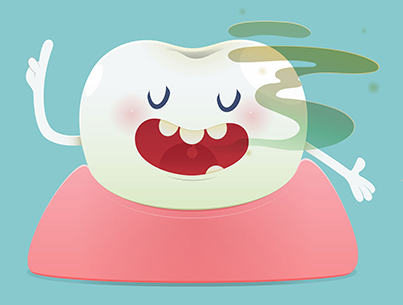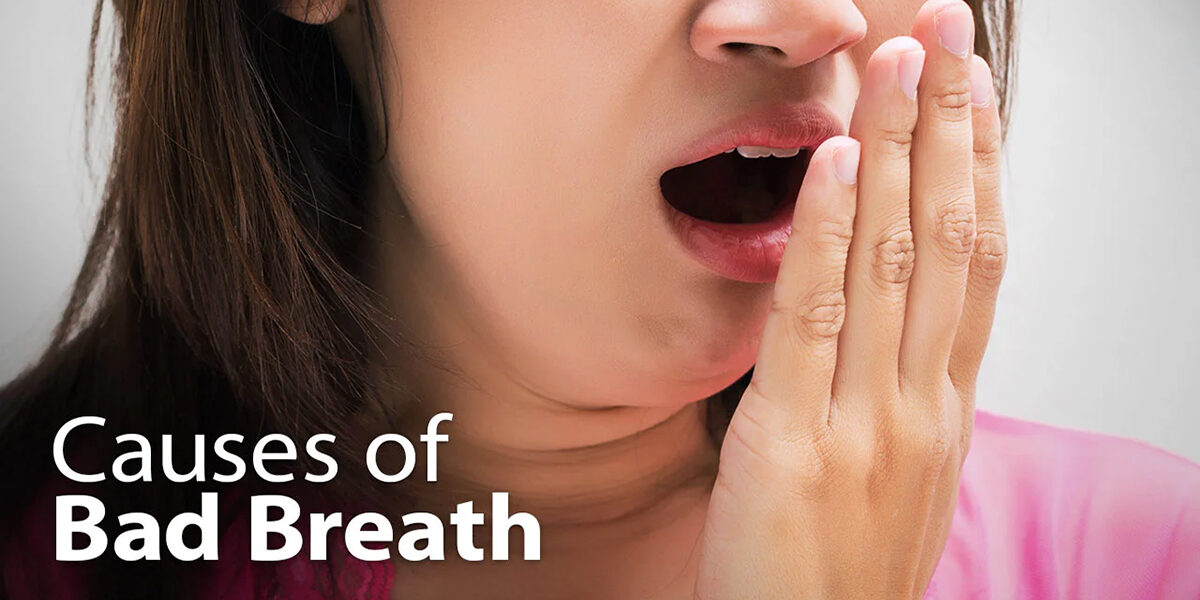7 Common Causes of Bad Breath
Although everyone experiences foul breath at some point in their lives, 25% of Australians suffer from bad breath or halitosis. Your diet, lifestyle choices, and certain medical conditions are some of the many factors that can contribute to bad breath, which typically starts in the mouth. Some possible oral reasons of foul breath are examined in this blog.
1. Specific Foods and Drinks
Bad breath can result from eating certain foods, such as dairy, onions, garlic, and spices. Additionally, beverages like coffee and alcohol can dry out your mouth, which encourages the growth of germs that creates foul breath.
2. Bad Dental Care
Bad breath results from food particles remaining on your teeth if you don’t brush and floss your teeth every day. Furthermore, if you wear dentures, food particles may become stuck below them and cause an unpleasant odor. The tongue, which many individuals neglect to wipe as part of their dental hygiene regimen, can also harbor bacteria that cause odors.

3. Dry Mouth
Saliva aids in the removal of oral germs that produce unpleasant odors. Bad breath results from microorganisms that cause odors not being wiped away by saliva when you have dry mouth. This explains why the majority of individuals experience “morning breath”; when you sleep, your salivary flow slows down, resulting in dry mouth and foul breath.
4. Smoking
Smoking can cause your mouth to become dry and smell like an ashtray, which can lead to foul breath. Additionally, gum disease, another cause of foul breath, is more common in smokers.
5. Cavities
Plaque, which is made up of bacteria and food particles, builds up in cavities and tooth decay, which results in foul breath.
6. Gum Disease
Plaque accumulation on teeth is the cause of gum (periodontal) disease. Toxins are created by the germs on your teeth when you don’t clean and floss correctly. Gum irritation, food-trapping pockets that develop between your teeth and gums, and foul breath can result from this.
7. Dental Procedures
Until the incision heals, foul breath may result from bleeding or dry sockets following extractions (such as the removal of a wisdom tooth). Bad breath can also result from a dental implant infection, therefore maintaining proper oral hygiene is essential to avoiding unpleasant side effects.
8. Other
Your foul breath may have causes that are not related to your mouth. Heartburn, stomach disorders, uncontrolled diabetes, kidney disease, asthma, cystic fibrosis, liver cirrhosis, tonsillitis, sinus infection, and other severe conditions may fall under this category.
Additionally, certain drugs emit substances that cause bad breath or contribute to dry mouth.
Gum, mints, and mouthwash will just mask the issue. Bad breath may usually be improved by maintaining a good dental care regimen. If the issue cannot be resolved with at-home care, call your dentist and make an appointment for a thorough examination.
It is strongly advised to speak with us at Oakstone Dental because addressing the underlying reason is crucial to eliminating foul breath and maintaining good health.


